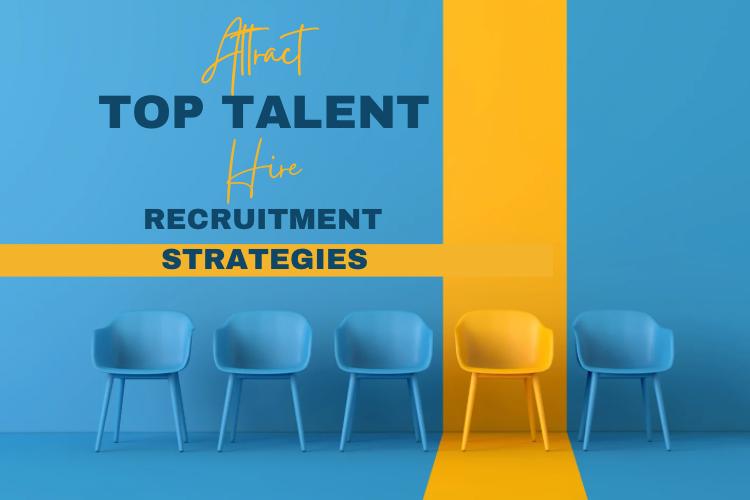
Top Talent Recruitment Strategies: How to Attract and Hire the Best Candidates
Bishnu Dev Changkakoti
Today, the modern workplace is evolving rapidly. With quicker access to new skill sets and a rapid shift toward gig work, the workforce is striving to secure a valuable position in this competitive landscape. Along the same lines, companies and firms are thriving towards absorbing the best of talents, ensuring the growth and longevity of the business. Recruiting top talent is important in every industry, and in some industries, hiring qualified people is especially competitive.
The Human Resources (HR) professionals and hiring managers are expected to stay updated with the latest requirements for attracting and hiring top talent.There are certain strategies human resource (HR) professionals and hiring managers can use to recruit talented people. Getting familiar with these strategies can be a game changer for every firm.
In this article, we explain what recruiting talent means and discuss how to recruit top talent, including improving company culture and making quick job offers.
What do you understand by recruiting top talent?
Recruiting talent is the act of finding high-quality candidates to hire, either while working as a recruiter or hiring manager.
Recruiting talent requires companies to not only select the best candidate out of a pool but also follow certain practices to attract the best talent and keep them long-term. This is often a combination of talent recruiting, talent acquisition and talent development.
What does it take to recruit the best into your company?
Here are certain key strategies one can follow:
1. Create a positive workplace culture:
One of the most important aspect of this process is to ensure a workplace which not only feels homely but also is able to fulfill the professional and personal requirements of its employees. Current employees may be more likely to refer their talented friends for positions within the company, which can grow your talent pool. The high-quality employees you already have can also develop their skills in a positive workplace, which grows your internal talent.Having policies to prevent and resolve problems quickly can help create a positive work culture. Ensuring the workplace is welcoming and free from harassment or discrimination is another necessary component.
2. Developing effective job descriptions:
Job descriptions are often a candidate's first introduction to an open position, whether a friend sends them the information, a recruiter provides it to them or they find it on a career page or job site. The job descriptions created for a company are as effective as possible. While including a list of the role's responsibilities and qualifications is useful, it's also helpful to include information about what it's like to work at the company or how a candidate can benefit from working there.
Top talent may be interested in a job description that discusses the basics of the job and includes relevant information about the company or industry.
3. Plan interviews based on talents:
Most companies have a standardized interview process all candidates have to complete. This might include a screening interview with a recruiter or HR staff member, any necessary skills assessments, an interview with the hiring manager and possibly their team, a reference check and an offer.
However, there is always a scope for mediations and alterations in order to make this process quicker and more effective. Using professional recruitment software to track candidates and compare feedback from each interviewer can also help you evaluate people quickly.
4. Verify credentials and make an offer fast:
Once you're ready to make an offer to a candidate, it's important to verify their credentials. Making sure that the people you hire meet the company’s qualifications and can perform well is an important step in recruiting top talent. If the candidate you want to hire meets all the credentials, making a offer fast is important. This ensures easier absorption as many candidates, while anticipating lengthy processes might receive offers elsewhere and you don't want to miss out on them.
Most highly qualified candidates are aware of their skills and their value and demand in the market. So it is necessary to make them feel that your company is the best fit for mutual benefits.
5. Stay in contact with quality candidates:
If there are high-quality candidates that would’ve been a good fit for the company, but they either declined your offer or you chose a slightly more suitable candidate, it's helpful to maintain contact with them. You may find a position that's a better fit for them, or they might reapply to the company in the future. They may also grow useful skills over time that could make them more valuable to the company. If you believe a candidate is the best talent in your industry, stay in contact with them and find a way to hire them later.

